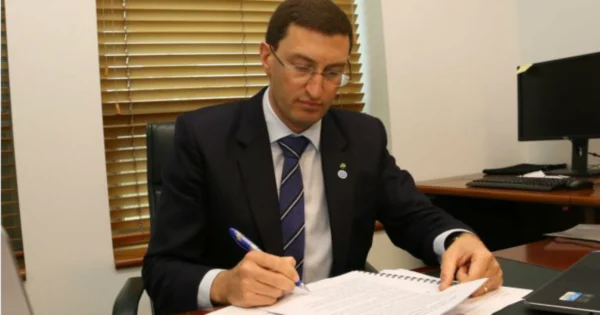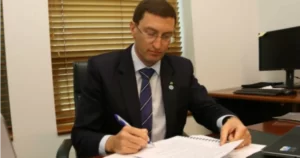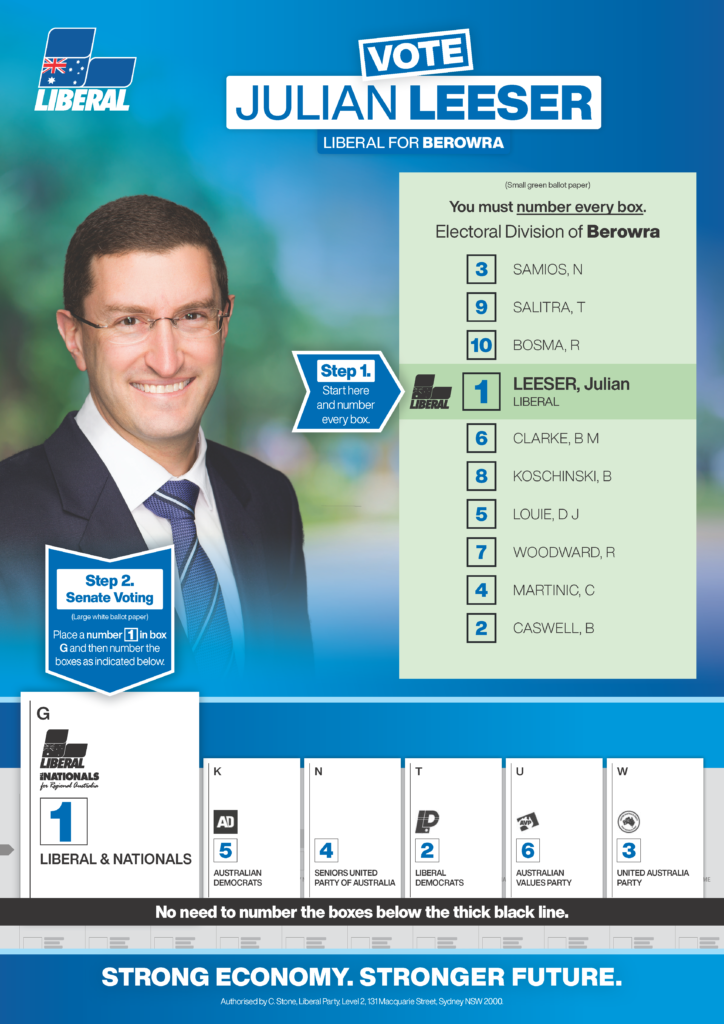Check against delivery
Mr Speaker
I begin by acknowledging this nation’s Indigenous people and their 65,000 years of endurance, resilience, and wisdom.
I recognise the Ngunnawal and Ngambri peoples on whose lands we gather.
I pay my respects to the members of the Stolen Generations who are with us and bring their own stories, experiences and pain to this gathering.
You are the living witness to policies that failed.
And you inspire us all with your indomitable spirit.
And I pay tribute to the Indigenous members and senators who I call colleagues – and the Minister for Indigenous Australians, who like her ministerial predecessor, I call a friend.
This chamber is not only a meeting place. It is a place of memory – of shared national memory.
And we are right to remember.
Opening of Parliament
We remember, almost a century ago, the first-time parliament met in this city.
In a building like a small white wedding cake set amongst fields of grass and dust.
At that first gathering of the Parliament, at Canberra thousands were invited.
Thousands and thousands, but not a single Aboriginal or Torres Strait Islander person.
Not one.
So two Indigenous men, Jimmy Clements and John Noble took it on themselves to walk to Canberra and let the presence be known.
Officialdom tried to turn them away, but the crowd demanded they stay.
And they did.
Fair minded Australians have always been on the side of the person having a go.
Landmarks
And we remember the actions of that great Yorta Yorta man William Cooper – an organiser, petitioner and agitator for change who spoke up not only for his own people but for other as well.
In 1938 he protested the absence of Indigenous members from the Parliament – and in December of that year, after the events of Kristallnacht, he led one of the few protests to the German consulate decrying the persecution of the Jewish people by the Nazis in Germany.
We remember the Bark Petition.
The 1967 Referendum.
The arrival of Neville Bonner in the Senate – and Ken Wyatt in the House of Representatives – and so many more since.
And on this day, we remember the Apology.
An Apology for children taken from parents, families, community and culture.
An Apology for brothers and sisters separated.
An Apology for forced relocations away from country.
An Apology – to use the words from Neville Bonners first speech – to those who “were shot, poisoned, hanged and broken in spirit until they became refugees in their own land”.
An Apology for the pain that cascades through generations.
And an Apology that needs to be repeated again and again wherever and whenever Aboriginal Australians are denied the same opportunities as their fellow citizens.
Mr Speaker, on days like this, for those of us without a lived experience of dispossession or loss, it is easy to speak of the past, and linger there.
To linger there because it is easier than confronting the present – to confront the work we still must do.
Mr Rudd was right when he said “it is not sentiment that makes history; it is our actions that make history.”
That demands that we speak of the present.
And to speak of the present in terms of a shared accountability.
Participant not Observer
Last Thursday, the Prime Minister said something to me – and his words have stayed with me all weekend.
He said simply: “the member is a participant not an observer”.
A participant not an observer.
Across too many areas in government, in the bureaucracy, in the parliament, and the media, we have all become observers.
Our fears have frozen us.
Fears about complexity – and understanding the interrelationship of different issues.
Fears of making bad situations worse.
Fears about unintended offense – and of culturally misreading moments.
Fears of the stigma we might create, by highlighting failures.
They are the fears we don’t talk about, but most of us share.
They make us observers not participants.
Senator Price and the Member for Lingiari raised the alarm about Alice Springs in their first speeches about eight months ago.
From both sides of the aisle, two indigenous parliamentarians who have not been afraid to speak the truth.
The truth about grog.
The truth about violence.
And the truth about our continued failings as a people.
I pay tribute to their courage, I know it hasn’t been easy.
I say to the Prime Minister, we all need to stop being observers.
All of us.
Yes, it is right to remember the past. Yes, it’s right to want to change the future, but our place is here in the present – and that is where all of us are failing.
I have seen the Interim Report into Closing the Gap, and I thank the Minister’s office for their briefing.
On a day we remember the devastating effect of the failed policies of the past, I want to talk about failed policies of the present.
I want to talk about the people living in towns and regional areas across Australia – and the intertwining of alcohol, violence and community failure.
These are not easy topics to talk about.
Last week, the report by the Northern Territory Controller into Alice Springs was released.
I want to read a few lines that cut me to my core:
“The children who have been spoken to have unanimously voiced their hatred of alcohol and the harm it inflicts on their families. Their simple aspirations are to live in a ‘normal place’, have jobs when they are older and be able to support their families with basic needs.”
Let me say it again the Children voiced their “hatred of alcohol and the harm it inflicts on their families”. Such powerful and simple words.
The children are speaking truth to us.
Beyond Alice
The sad truth is, it’s not only in Alice Springs.
And I want to speak about a few other places.
Places where we must hear the local voices.
The Member for Leichhardt has told me about failures in places such as Aurukun in his electorate where school attendance has dwindled, and where the local paper says that despite 50 police officers, residents are reluctant to leave their homes – and those that do, often arm themselves with metal fence pickets and crossbows.
The Member for Grey has told me about the issues being faced in Port Augusta and Ceduna.
In Port Augusta, there is a large transient population.
There is unrest and fear and shops that have closed.
In Ceduna, where I heard on my visit there just after I became shadow Minister that the Cashless debit card provided a measure of relief, now residents are fearful about the damage being done by alcohol, and fearful of speaking up publicly.
Fearful there might be consequences because they want to restrict the grog.
The Member for O’Connor has spoken to me about Laverton and Leonora.
In Laverton, local Indigenous leaders are begging for tougher alcohol restrictions.
He has told me about Sarah Sullivan an Indigenous resident who has spoken publicly about Laverton being a great town when she grew up, but her children were experiencing something terribly different these days.
Children and adults chased for money and smokes, abused by drunks.
Local voices matter, and they aren’t being heard.
The Member for Durack has written to you Prime Minister about the Kimberley, the Pilbara and the town of Carnarvon.
The Member for Durack has met with a collection of Pilbara organisations that includes:
- Pilbara Aboriginal Health Alliance,
- the Youth Involvement Council,
- the Yinhawangka Aboriginal Corporation,
- the Puntukurna Aboriginal Medical Service, and
- Robe River Kuruma Aboriginal Corporation.
They share a deep concern about youth crime and the destructive trail it is leaving. The Federal Government invests millions in diversionary programs and we must urgently determine if our investment is fit for purpose – and are being delivered as intended.
The Member for Durack says “isolation is a way of life for many in Durack” but now “fearful residents are further isolated, bound within their own homes, too scared to leave”.
Today on this anniversary, we must honour the past by answering the failures facing this generation of Indigenous children.
The present in so many regional and remote communities is terrible.
I am not blaming the Prime Minister or the Minister, or the state and territory governments, this is a collective failure. I put my hand up and share that blame with everyone.
Royal Commission
Despite the progress in other areas, some of which are reported in today’s Interim Closing the Gap Report, this is an Australian failure.
It is a shared Australian failure.
In all too many places, alcohol is fuelling the most unspeakable crimes against women and children.
This cannot be allowed to continue.
That’s why I support the Leader of the Opposition’s call for a Royal Commission into the abuse of Indigenous Children.
In many cases, these are the grandchildren and great grandchildren of the Stolen Generation.
The Member for Maribyrong was right to call for a royal commission into aged care. A royal commission that Prime Minister Morrison agreed to.
The Prime Minister when Opposition Leader called for a Royal Commission into Veteran suicide. Again, Prime Minister Morrison agreed to it.
The Leader if the Opposition is right to call for a Royal Commission into the abuse of indigenous children and the Prime Minister should agree to it.
Royal Commissions are never comfortable. I understand that.
But frankly, they are a whole lot better than facing regional failure after regional failure and simply continuing with more of the same.
The Prime Minister and Minister have spoken passionately about the Voice – I share their passion, but it is in our national interest to heed the voices of Indigenous Australians that are speaking now.
We must pay attention to the voices that do not already have a platform in Australian public life.
And we must heed the calls of children, whose simple yearning is for a normal life – the sort of life we would hope for any of our own children.
If we are to break the cycle, we cannot afford to ignore these voices any longer.
So let us use this 15th anniversary of the National Apology to recommit ourselves to action, action in partnership with Indigenous communities, with the Coalition of Peaks, with state, territory and local governments, and all people of goodwill.
Let us all choose to be participants and not observers in the repair of our country and the reconciliation of our nation.




